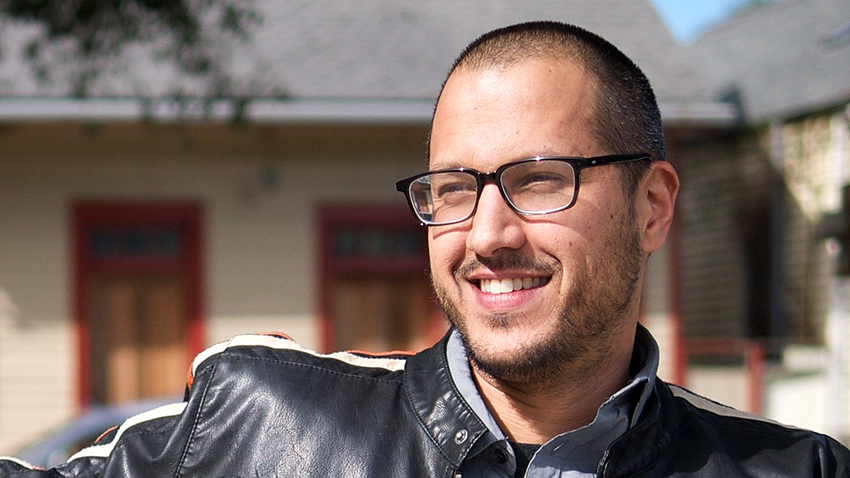On one of his trips as a traveling salesman to support his writing career, Sunil Yapa’s laptop was stolen from his hotel room in Chicago. It contained the complete, 600-page manuscript of his first novel. Yapa’s rewritten novel, “Your Heart Is a Muscle the Size of a Fist,” was released earlier this year and is about the World Trade Organization Protests in Seattle in 1999. The Daily Texan spoke to Yapa before his appearance at the Texas Book Festival on Nov. 6.
The Daily Texan: For those who don’t know, what were the WTO protests about and what are their lasting legacies?
Sunil Yapa: It was a very broad coalition of interests that came to protest the WTO … and so there is not one thing they all wanted. I would say in general, it gets characterized as anti-globalization, and I don’t think that is correct. They were anti-corporate globalization. A lot of people were upset that our democracy was being superseded by these trade agreements through the WTO trade court.
DT: What kind of research went into writing this book?
SY: I was really lucky. My roommate at the time was a guy named Tennessee Jones who was an activist who had been at the WTO protest. He had a bookshelf of zines that had diary entries, cartoons and political essays from around the WTO era of activism. When he asked if I wanted to look at them, I was like “Oh my God, this should be in the Library of Congress,” but instead it was on Tennessee Jones’s bookshelf. I got to look so intimately at how activist communities were talking to each other: their hopes, fears, jokes, everything. I got to be a fly on the wall.
I also found out that all five days of the police scanner traffic from the protests were recorded and those recordings were available to the public in the Seattle city archives. I got a very intimate view of how the police talk to each other over the scanners. You could hear the voice behind them grow louder so you could feel that the protests were growing larger and larger … and the first time I heard a cop scared, I knew I could write myself into a more human moment with the police.
DT: Was there any upside to losing your initial manuscript for this novel?
SY: Yes, absolutely. After I got over it. I spent three months doing nothing but watching Netflix on my dad’s couch — I watched every episode of “Friday Night Lights,” I watched every game of the NCAA basketball tournament and had to set up multiple TVs to do [so.] The original book was a postmodern, clever, young graduate student book. It had 60 characters, the main character was the riot itself, and I had written a fake encyclopedia and pasted torn-up entries into the book.
I prefer the second draft to what I had before, but I guess I have to say that. I can’t say the first one was better because then I would be depressed.
DT: You’ve traveled quite a bit and lived abroad in several places. Do you think that has affected your writing?
SY: I traveled that much out of financial need, which was the way I solved the starving artist problem. I would sell posters to college kids in the U.S. for two months at the beginning of the semester, and I would take my money — which was usually about $10,000 — and I would take that to another country where I could live for nearly the rest of the year without working, or with a light amount of work, and just write. I was really lucky to have what a writer needs most, which is time without the pressure of making money.
Sunil Yapa will speak on the “Making Art out of Chaos” panel from 3:45 to 4:45 p.m. at the Capitol Extension Room.















